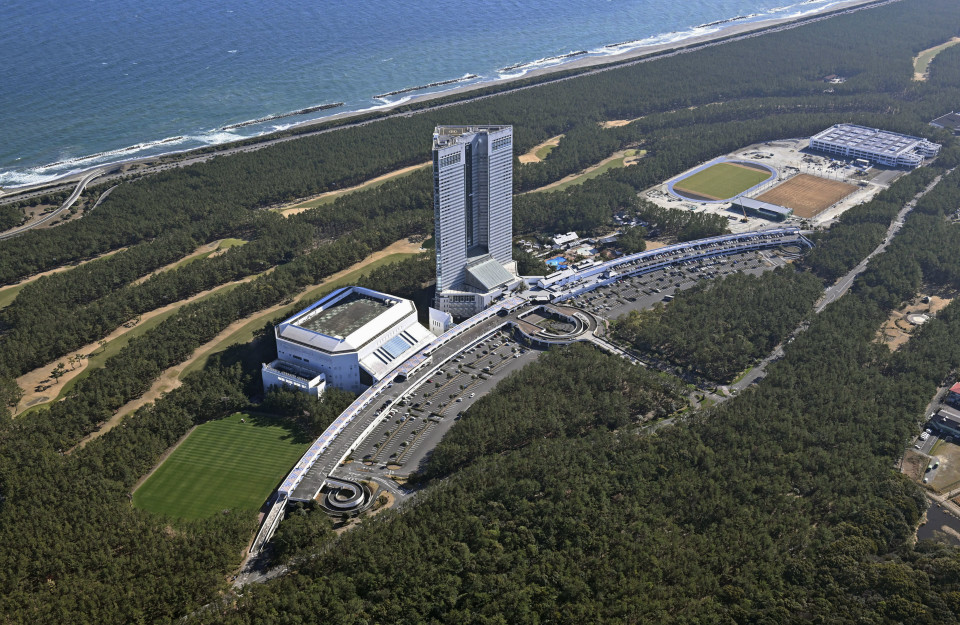Japan will start hosting a series of Group of Seven ministerial meetings in the run-up to the summit in May, seeking to lead discussions over a range of issues that include Russia's war on Ukraine, energy and food supply concerns and the global economy.
A total of 15 in-person ministerial gatherings are scheduled across Japan throughout this year, the most the Asian country has hosted while holding the rotating presidency of the group of major industrialized nations.
Japan is chairing the G-7 summit for the seventh time, with the unity of the group -- Britain, Canada, France, Germany, Italy, Japan and the United States, plus the European Union -- increasing its significance in the face of Russia's military aggression and China's growing assertiveness.
Nine ministerial meetings are scheduled ahead of the three-day G-7 summit from May 19, providing input for discussions when Japanese Prime Minister Fumio Kishida and his counterparts meet in the western Japan city of Hiroshima.
The first to come is a two-day meeting from April 15 by ministers in charge of climate, energy and environment issues in Sapporo in the northernmost prefecture of Hokkaido.
Efforts to ensure energy security and achieve carbon neutralization while sustaining economic growth will be among the topics to be discussed, according to the Japanese government.
Russia's war on Ukraine, which began in February 2022, has pushed up prices of oil and natural gas supplies around the world as Moscow has been a key energy exporter, driving countries to diversify energy supplies including by seeking to introduce renewables.
For three days from April 16, the G-7 foreign ministers will gather in the central Japan resort town of Karuizawa, Nagano Prefecture, to reaffirm their unity in dealing with security challenges posed by Russia and China, as well as North Korea's nuclear and missile development.
The G-7 members have imposed a slew of punitive steps against Russia, including a freeze on assets held by President Vladimir Putin and the exclusion of Russian banks from the SWIFT international payment network. They have also introduced a price cap on Russian crude oil to squeeze Moscow's key revenue source.
The meeting is also likely to be a chance for top diplomats to reaffirm their resolve to oppose unilateral attempts to change the status quo by force, and call for a "free and open Indo-Pacific" as China increases pressure on Taiwan, the self-ruled democratic island that Beijing views as its own.
With the global economy fighting persistent inflation and the fallout of Russia's war, finance ministers and central bank governors will hold talks in Niigata in central Japan from May 11 to 13, just about a week ahead of the Hiroshima summit.
Recovery from the coronavirus pandemic and addressing the debt problems of developing countries remain key themes, while concerns over global financial stability have emerged following the recent collapse of the Silicon Valley Bank, a major U.S. lender for startups, the largest bank failure since the 2008 financial crisis.
The finance chiefs are also likely to talk about tightening regulations of the cryptocurrency sector with the aim of enhancing business transparency and consumer protections, officials familiar with the matter have said earlier.

At the farm ministers' meeting for two days from April 22 in the southwestern city of Miyazaki, the food supply crisis and elevated food prices are expected to dominate the discussions, with Russia's war disrupting key markets for crops and fertilizers.
Addressing vulnerabilities in communication infrastructure, meanwhile, will be discussed when ministers in charge of digital issues will gather for two days from April 29 in the city of Takasaki in Gunma Prefecture, northwest of Tokyo.
Ukrainian Digital Transformation Minister Mykhailo Fedorov is considering traveling to Japan to join the gathering to share how his country has coped with Russian cyberattacks, according to Japanese government officials.
Other meetings include a gathering of labor ministers in Kurashiki, Okayama Prefecture, in western Japan for two days from April 22, and one joined by science and technology ministers in the northeastern city of Sendai, Miyagi Prefecture, from May 12 to 14.
Education ministers are also set to attend a meeting in the central Japan cities of Toyama and Kanazawa from May 12 through 15, while the health ministerial gathering is scheduled in Nagasaki between May 13 and 14.
Related coverage:
Biden may visit to Japan chip plant on G-7 summit sidelines
G-7 to push for tighter cryptocurrency regulations
Hiroshima group makes int'l "okonomiyaki" dishes to tempt G-7 leaders












